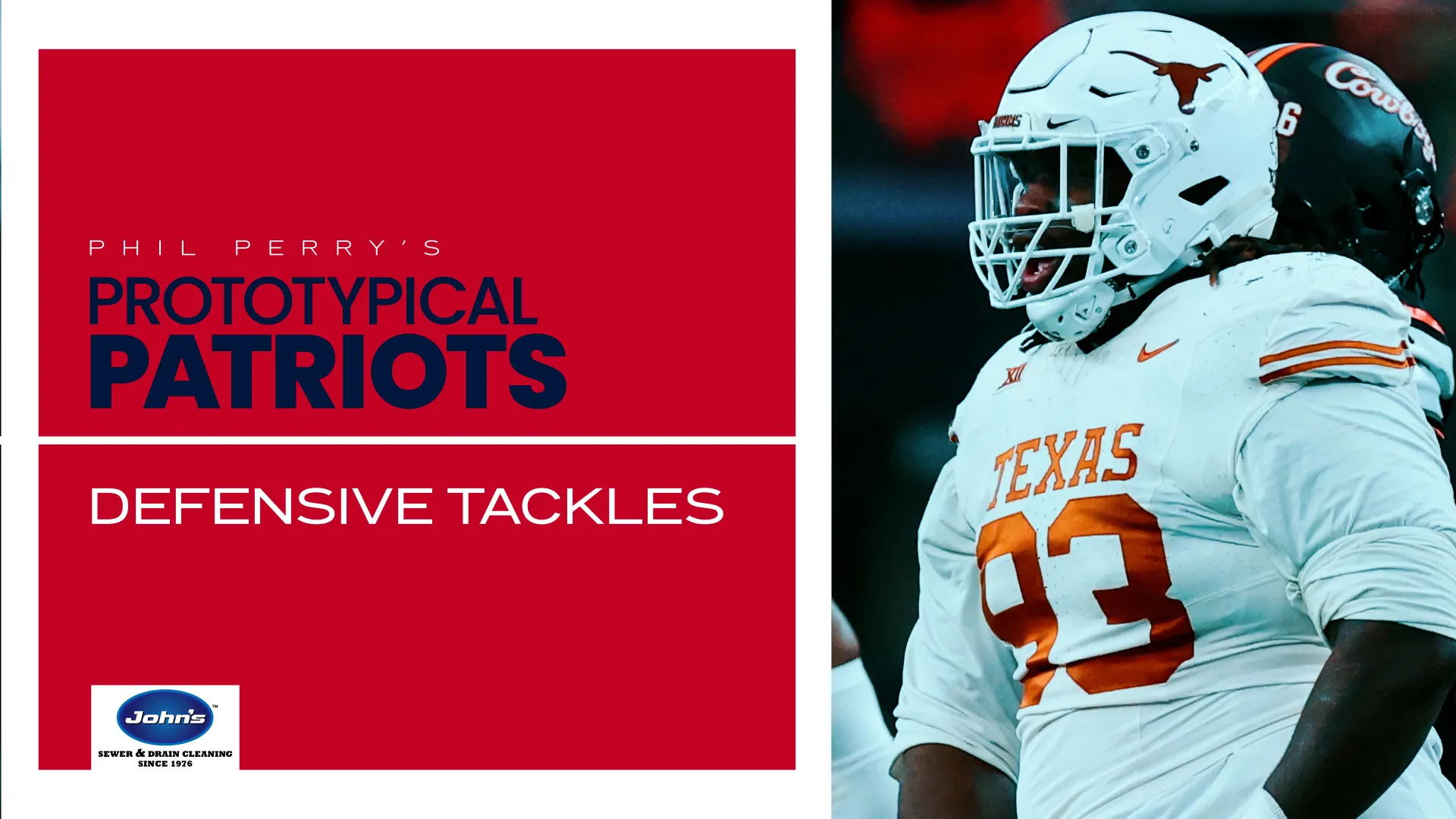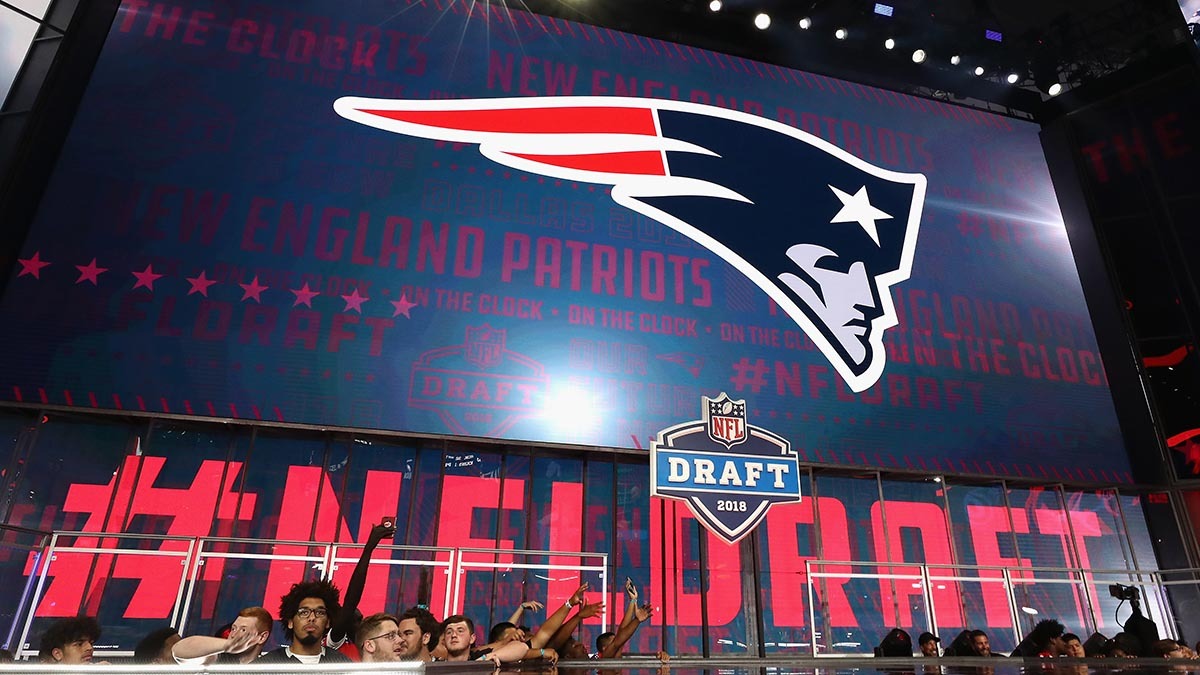There’s no handwringing over which Bill Belichick coaching decision is most worthy of second-guessing.
It’s the still-unexplained decision to bench Malcolm Butler in Super Bowl 52 against the Eagles. That’s in a class by itself. On an island by itself. On a planet by itself.
If Belichick coaches the Patriots for another 20 years, I can’t imagine anything else coming close.
The only way he could, I guess, would be if the Patriots win five Super Bowls from 2021 to 2037.
Download the MyTeams app for the latest Patriots news and analysis
Maybe by then, Belichick would be once again so sure of his team, so convinced of the impotence of his opponent, so unwavering/stubborn/cavalier/dictatorial to decide, “Nahhhh, let’s let this halfway decent player rot on the sidelines in the biggest game of the year for no apparent reason while the horrendous players on the field in his place get undressed. Over. And Over.”
And then chase that decision with no explanation at all. Just send his coaches and players out in the postgame to stumble and mutter inanity as to why the halfway decent player WHO PLAYED 98 PERCENT OF THE DEFENSIVE SNAPS DURING THE YEAR was left to weep on the sidelines.
Defensive coordinator Matt Patricia, who went from presiding over a defense that allowed 41 points and 538 yards of offense that day to the head coaching job in Detroit (where things aren’t going ... so good ...), put on a stammering clinic in the postgame.
New England Patriots
Question: Why didn’t Butler play?
Patricia: “We were just trying to run some packages we had on defense, and those guys that were out there for all the situations that we needed them for. So it kind of turned out that way, and the game, with the way it went and some of the situations that came up, that was just kind of the way it went.”
Q: Butler started 17 of 18 games for you. It seems bizarre he couldn’t make it on the field when the Eagles were putting up 41 points. It’s got to be more than that.
Patricia: “Again, we had some guys in different spots that we practiced and in those spots for a couple weeks. We just felt good about some of those situations that we had out there and some of the matchups that we had that they possessed based on the skill sets that they have.”
Q: Butler is one of the best players on your team. How could you have him on the sideline for the whole game?
Patricia: “I mean, again, we’re just trying to put everybody in the right spot to make plays — the guys that we thought could make the plays in the right situation.”
Q: Isn’t it weird that Butler was active if he wasn’t going to play?
Patricia: “I mean, we needed enough guys to be active for the game to play, for whatever situation that came up. If he was called upon, he was ready to play in those packages if that situation arose.”
Suffice to say, the situation never arose. The decision to leave Butler on the sidelines put players like Johnson Bademosi in the crosshairs of Nick Foles. And forced the Patriots to shuffle secondary personnel so that players like Jordan Richards, not Patrick Chung, ended up in high-leverage positions. And that went badly.
We still don’t get the why of it.
Listen and subscribe to Tom E. Curran's Patriots Talk Podcast:
A lot transpired between the moment Butler made the greatest play in Super Bowl history on February 1, 2015 and February 4, 2018 when he was reduced to a uniformed spectator.
He had two very good seasons in 2015 and 2016 and the Patriots tried to lock him down.
According to ESPN’s Field Yates, the Patriots final offer was a six-year, $66M contract with $25.5M guaranteed.
Here’s part of a story I did on the situation after Butler departed the Patriots.
Butler balked. Instead of taking that offer in the summer of 2016, Butler and his agents eyed the deal Josh Norman got from the Redskins in April of 2016 — a five-year, $75M deal with $50M guaranteed.
Surely, Butler would do better than that, they believed. So Butler played out the final year of his contract in 2016 making $600,000.
By the end of the 2016 season, the Patriots had a change of heart on Butler. And they decided they’d prefer Stephon Gilmore. Having faced Gilmore 10 times since he came into the league as the 10th overall pick in the 2012 draft, the Patriots loved Gilmore’s length and natural ability.
The stubbier Butler played at a more continually aggressive pitch than Gilmore but there were times he’d be physically outgunned because of his height. So Gilmore got the five-year, $65M contract with $31M guaranteed.
The Patriots put the first-round tender tag on Butler as a restricted free agent and hoped someone would bite. The New Orleans Saints nearly did. After the two teams talked about swapping Butler and wide receiver Brandin Cooks, the Patriots traded a first-rounder for Cooks.
Butler then visited with the Saints. If the Saints could sign him to an offer sheet and the Patriots didn’t match, New England would get a first-round pick back.
But it would be New Orleans’ pick — the 10th overall — not the 32nd overall pick the Patriots sent for Gilmore.
The Saints cooled. Butler stayed, played extensively but somewhat inconsistently then was inexplicably benched from the regular defense in Super Bowl 52 after playing virtually every defensive snap all season long.
In short, Butler was pissed off all of 2017 and the contractual irritations impacted his play.
Then, just prior to the leaving for the Super Bowl host city of Minneapolis, Butler said he fell ill and visited the hospital on Sunday and Monday for flu-like symptoms before joining the team on Tuesday of Super Bowl week.
His first practice was Wednesday. It was the only padded practice of the week and Butler was a limited participant.
One unconfirmed scenario for why Butler didn’t play may be traced to that practice. Supposedly, there was a dustup with safeties coach Steve Belichick. Butler was told to take the field for a special teams session he didn’t normally participate in. Butler balked. Steve Belichick got after Butler for balking. Butler bit back.
Nobody knows what was said, how ugly it got, etc. Nobody has even confirmed it happened at all or if something else led to the benching. But it does make sense. That supposed insubordination combined with Butler’s late arrival in Minnesota, ineffectiveness at different times during the season and Philly’s fleet of tall receivers may have sealed Butler’s fate.
If that was the case, it’s understandable why Belichick would want to be particularly tight-lipped about it. And Butler too, perhaps.
"I never got a reason," Butler told reporter Jeff Howe, who was then with the Boston Herald. "I feel like this was the reason. I got kind of sick. I went to the hospital. They probably thought I was kind of late on the game plan; I wasn't as locked in as I should be and could have been a matchup deal. It could have been anything."
Would the Patriots have won if Butler played? One can never say with 100 percent certainty they would have.
Even if Butler showed up on time and was an altar boy, the Patriots still may have started Eric Rowe over him because the Eagles wideouts had a height advantage on Butler.
In addition, the Patriots were game-planning to deal with the read-option of the Eagles and the running threat posed by LeGarrette Blount, Jay Ajayi and Corey Clement. They wanted more safeties on the field. Hence, Bademosi and Richards combining for 27 snaps.
But we’ve been told time and time again by coaches and players that the key to successful secondary play is communication. Deciding to remove a player that everyone is familiar with — a player you offered a $66M contract to — and inviting onto the field players who were decidedly overmatched remains indefensible.
-
Hindsight 2020: Not enough Tatum in 2018 ECF | No Backes in Game 7 | Bobby V's role in Bard's freefall


